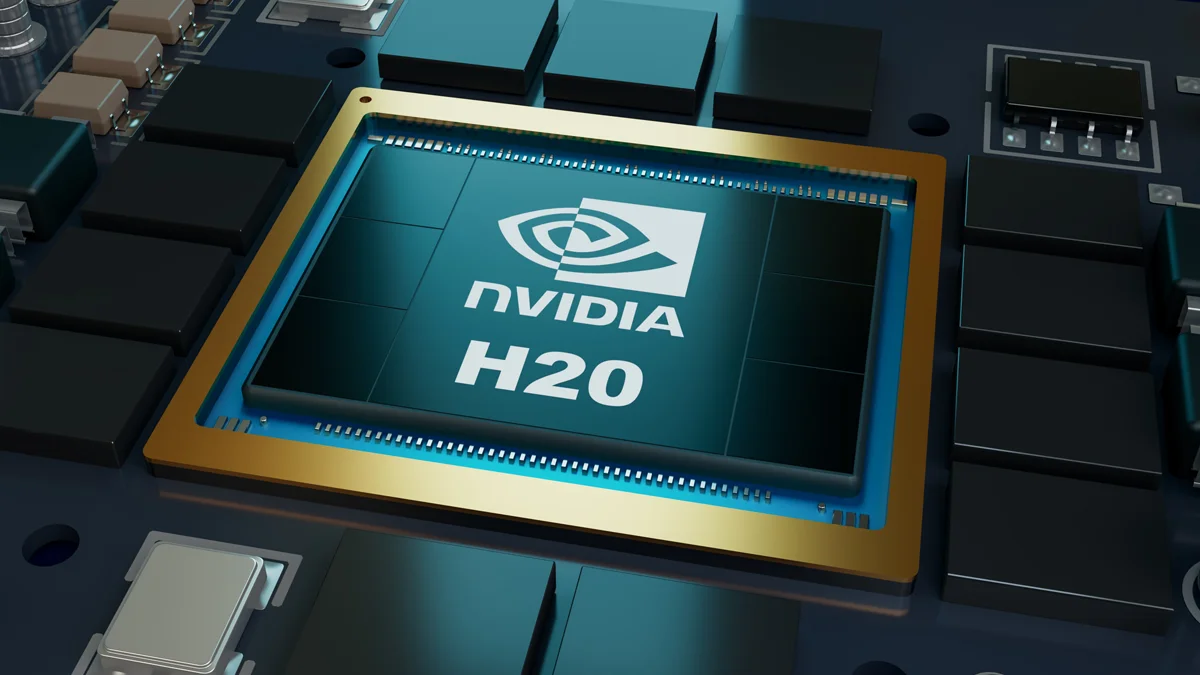Necessary Always Active
Necessary cookies are required to enable the basic features of this site, such as providing secure log-in or adjusting your consent preferences. These cookies do not store any personally identifiable data.
|
||||||
|
||||||
|
||||||
|

Less than a month since NVIDIA resumed H20 chip export to China, tech experts say the chips may face limited enthusiasm. According to CNBC, this is due to regulatory scrutiny and emerging competition that has rocked the Chinese market.
In mid-July, the US administration gave Nvidia the green light to resume H20 chip sales to China following an export ban in April. The approval was seen as a big win for NVIDIA, which had announced a $5.5 billion charge in its 2026 quarter one results following the chip export ban. However, analysts warn that the return of H20 GPU chips to the Chinese market does not mean that NVIDIA will automatically regain its market share.
Forecasts by global brokerage firm Bernstein, show that NVIDIA’s chip market share in China would drop to about 54% in 2025. According to a report by Bernstein, the drop is partly due to the complexities in resuming chip supply. The growing prominence of local AI chip manufacturers like Huawei, Hygon, and Cambricon will also reduce NVIDIA’s market share as they tap the growing demand in the domestic market.
“US export controls have created a unique opportunity for domestic AI processor vendors, as they are not competing with the most advanced global alternatives. The localization ratio of China’s AI chip market will surge from 17% in 2023 to 55% by 2027,” Bernstein stated in its
report.
Some analysts like The Futurum Group remain optimistic about NVIDIA’s ability to bounce back in China. However, the Group’s CEO Daniel Newman warned of market share erosion from customers who may have turned to Chinese competitors during the H20 export ban period.
Bernstein’s projection on shrinking Nvidia market share in China comes barely a week after the tech giant ordered 300,000 H20 chips to boost its inventory.
NVIDIA CEO Jensen Huang lobbied for more access to the Chinese market before the Trump administration allowed the tech giant to resume H20 chip exports. According to Huang, US export restrictions on advanced chips were hampering America’s technological leadership.
Analysts at the Rhodium Group agree with this argument, claiming that easing the controls would create more dependency on American technology.
“The assumption is that by keeping US technology companies in the China game, the U.S. can preserve and even grow its geopolitical leverage,” Rhodium Group Director Reva Goujon said.
Although AI developers in China will appreciate having access to NVIDIA chips, Goujon says that Beijing will not slow down on its efforts to support development of local AI infrastructure.
According to the Rhodium Group Director, the recent move by the Cyberspace Administration of China to summon NVIDIA is a strong sign that the state intends to intervene in the domestic AI infrastructure market.
On July 31, 2025, NVIDIA officials met Beijing officials to discuss national security concerns around H20 chips. The Chinese regulator raised concerns over potential backdoors that could potentially allow US authorities to access or control the chips remotely.
The regulator asked NVIDIA to “clarify and submit relevant supporting documentation regarding security risks, including potential vulnerabilities and backdoors, associated with its H20 computing chips sold to China.”
NVIDIA denied having any backdoors on its AI chips. In a statement issued by its spokesperson, the company said, “Cybersecurity is critically important to us. NVIDIA does not have ‘backdoors’ in our chips that would give anyone a remote way to access or control them.”
The Chinese regulator’s move to summon NVIDIA was partially in response to the new chip smuggling bill proposed in the US. The proposed legislation requires chip manufacturers like NVIDIA to include location verification and security mechanisms in their advanced chips.
Futurum CEO Newman thinks Beijing’s move may have been an attempt to create hesitation among Chinese developers seeking to buy H20 chips.
“China wants to leave some levers in place to potentially restrict outside AI chips at some point down the line if and when it feels its homegrown technology is truly competitive” Newman said.